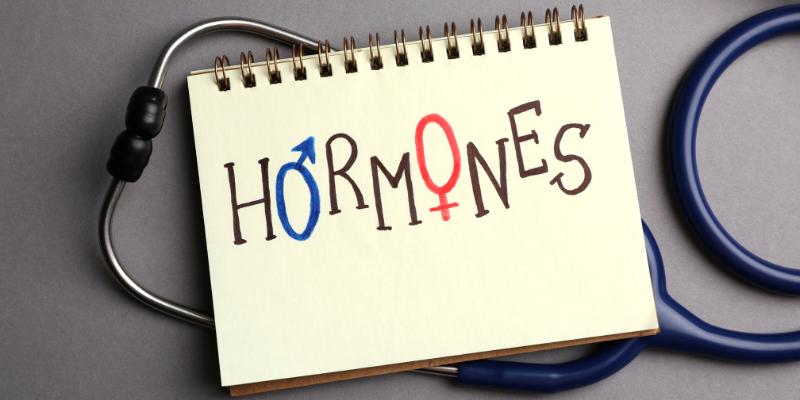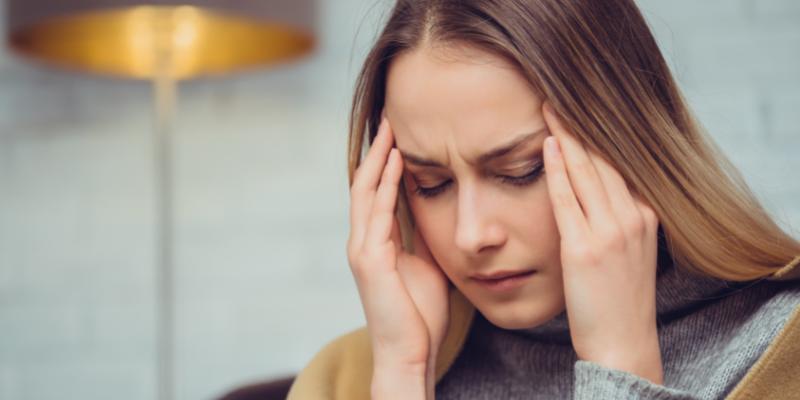How to Stop Headaches From Birth Control

Are you struggling to manage headaches caused by your birth control? Are you looking for ways to reduce pain and discomfort?
If the answer is yes, then this blog post is for you. In this post, I’ll give you some tips on how to stop headaches from birth control and provide tips on preventative measures so that you can stay healthy and pain-free.
Understanding the Link Between Estrogen and Migraines
Understanding the link between estrogen and migraines is important for headache sufferers. Estrogen levels can fluctuate throughout the month and during menopause, which can worsen or trigger migraines.
Having steady levels of estrogen might improve this disturbance while, on the other hand, having a drop in estrogen levels or any change, can make the pain worse.
Thankfully, there are certain steps that you can take to reduce the risk of getting a headache from birth control.
In fact, for many women, birth control actually helps prevent migraine attacks. Consistent, correct use may prevent or reduce episodes by providing a stable estrogen level.
Additionally, some contraceptives contain hormones other than estrogen, which may be beneficial for some women.
Emergency contraception only contains progesterone, which means you can take it, whether you have a migraine without aura or a migraine with aura.
However, in some cases, they may elevate the risk of stroke and should be discussed with a healthcare provider before use.
Now, are you ready to learn how to stop headaches from birth control?

How A New Piece Of Technology Provides The Drug Free Pain Relief You’ve Been Looking For
If you’re anything like me, you don’t want to use drugs or pills that you’re unsure about.
Switch to a Pill with Lower Estrogen Levels
Switching to a birth control pill with lower estrogen levels is one of the best options for reducing the risk of headaches caused by hormonal birth control.
This could be an option if you find that your headaches are triggered or worsened during the inactive pills. Estrogen levels in combination pills can vary from 20 to 35 mcg, so it is important to discuss with your doctor which pill might best suit your needs.
For women who experience severe migraines, it may be best to look into non-hormonal contraceptives, such as copper IUDs or condoms.
It’s also important to remember that taking your birth control pill at the same time every day can help reduce side effects, as this helps to keep hormone levels consistent.
Other side effects of birth control pills
In addition to headaches, birth control pills can also cause other side effects such as:
- increased blood pressure
- weight gain
- depression
- nausea
- breast tenderness
- mood swings
These side effects can vary from person to person, so it’s important to discuss any concerns with your doctor.
You may also like: How to Prevent Waking Up With a Migraine
Take Nutritional Supplements to Balance Hormones

To help balance hormones and reduce headaches from birth control, many women are turning to nutritional supplements as an alternative to hormonal contraceptives.
Some key vitamins and minerals to consider taking are Vitamin D, Magnesium, Vitamin B12, Riboflavin, and Vitamin B6.
While it’s possible to get these vitamins from foods, if you are a busy woman, you may not manage to consume adequate amounts every day. Taking a supplement can help to ensure that your body is getting the required levels of these nutrients.
There are other natural remedies that can be used to support your gut health and reduce inflammation, such as eating adequate fiber, prebiotics and probiotics, and reducing stress levels.
This can be beneficial in helping to reduce the severity of menstrual migraines. Vitamin E is also known to be helpful in reducing high levels of inflammatory compounds made by the lining of your uterus.
Consider Non-Hormonal Contraceptives
If you are looking for a non-hormonal contraceptive to avoid headaches, there are several options.
Intrauterine devices (IUDs) and contraceptive implants are two of the most popular options.
- IUDs are inserted into the uterus and release either copper or a hormone that prevents pregnancy.
- Contraceptive implants are inserted under the skin and release small amounts of progestin to prevent pregnancy.
These methods do not contain estrogen, so they may be a good choice for those looking to avoid headaches.
Understand Contraceptives to Avoid for Headache Sufferers
When choosing a contraceptive, it is important to consider the potential connection between estrogen and migraines.
Estrogen can increase the severity of headaches, so you may prefer to avoid certain hormones if you have a history of migraines with auras.
Pills with higher estrogen levels should be avoided, as they can trigger more frequent or bad headaches.
It’s also essential to reevaluate or discontinue combination hormonal contraception if you begin to experience escalating severity or frequency of episodes, or new-onset headaches.
It can be helpful to take nutritional supplements in order to balance hormones and reduce the potential for headache pain.
Ultimately, understanding the type of contraceptives to lower the incidence of headaches is essential.

How A New Piece Of Technology Provides The Drug Free Pain Relief You’ve Been Looking For
If you’re anything like me, you don’t want to use drugs or pills that you’re unsure about.
Benefits of Birth Control for Headache Prevention
Birth control can be an effective tool in the prevention of migraines for those who experience them due to hormone levels.
By stabilizing the fluctuations in estrogen levels, many people find that frequent headaches due to hormone-related causes become much less frequent.
Aside from this, there are other benefits to using birth control: it can be used to regulate menstrual cycles, reduce heavy flow and cramping, and can even help to clear up acne.
You need to understand how and when your body reacts to hormonal changes in order to stay healthy and free of migraines.
Stabilize Estrogen Levels By Consistent and Correct Usage

It is important to use birth control consistently and correctly in order to stabilize estrogen levels and prevent headaches.
This means taking the pill at the same time every day, or using the patch, gel, or pills exactly as prescribed. Taking estrogen to stabilize hormone levels doesn’t always work to treat migraine, but it can reduce the frequency of headaches related to low estrogen levels.
A birth control pill may contain a combination of hormones such as estrogen and progestin, or a single hormone such as progestin. The hormone-free interval is a specific time of increased headache and migraine, triggered by estrogen “withdrawal.”
Effective management of this type of pain requires consistent and correct usage of hormonal contraceptives.
Explore Alternatives To Hormonal Birth Control
For those with a history of migraines and auras, there are alternatives to hormonal birth control.
Non-hormonal forms of contraception, such as an IUD, diaphragm, or sponge, can help you reduce the risk of headaches and migraines.
Using the fertility awareness method (FAM) can be another effective way to track your cycle and avoid pregnancy without the use of hormones. If you’re looking for a more permanent solution, there are non-hormonal sterilization procedures available as well.
While hormonal birth control can be a great option for some women, it may not be the best choice for those who suffer from migraines with auras.
Exploring all your options is key to making an informed decision about your contraception.
Know When to Seek Professional Help
It is important to understand when to seek professional help if your headaches are not improving. If you have tried switching to a lower estrogen pill and taking supplements, but your headaches remain severe and frequent, it may be time to talk to your doctor.
They can work with you to identify the cause of the headaches and develop an effective treatment plan that considers both lifestyle modifications and medications.
Additionally, your doctor can provide expert guidance on different types of contraceptives.
The goal is to find the best way to prevent or reduce the frequency of migraine attacks while using the most suitable contraceptive for you.

How A New Piece Of Technology Provides The Drug Free Pain Relief You’ve Been Looking For
If you’re anything like me, you don’t want to use drugs or pills that you’re unsure about.
Now You Know How to Stop Headaches From Birth Control
As you can see, there are many tips on how to stop headaches from birth control. Understanding how your body reacts to hormonal changes is key to finding the best solution for you.
If your headaches still persist, it is recommended to speak to your doctor about other options or to seek professional help.






